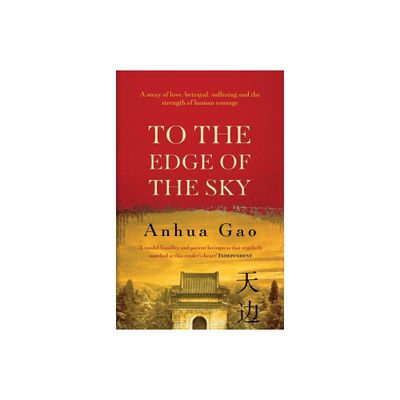Home
Sky Train: Tibetan Women on the Edge of History
Loading Inventory...
Barnes and Noble
Sky Train: Tibetan Women on the Edge of History
Current price: $99.00


Barnes and Noble
Sky Train: Tibetan Women on the Edge of History
Current price: $99.00
Loading Inventory...
Size: OS
*Product Information may vary - to confirm product availability, pricing, and additional information please contact Barnes and Noble
Through a lyrical narrative of her journey to Tibet in 2007, activist Canyon Sam contemplates modern history from the perspective of Tibetan women. Traveling on China's new "
Sky Train
," she celebrates Tibetan New Year with the Lhasa family whom she'd befriended decades earlier and concludes an oral-history project with women elders.
As she uncovers stories of Tibetan women's courage, resourcefulness, and spiritual strength in the face of loss and hardship since the Chinese occupation of Tibet in 1950, and observes the changes wrought by the controversial new rail line in the futuristic "new Lhasa," Sam comes to embrace her own capacity for letting go, for faith, and for acceptance. Her glimpse of Tibet's past through the lens of the women - a visionary educator, a freedom fighter, a gulag survivor, and a child bride - affords her a unique perspective on the state of Tibetan culture today - in Tibet, in exile, and in the widening Tibetan diaspora.
Gracefully connecting the women's poignant histories to larger cultural, political, and spiritual themes, the author comes full circle, finding wisdom and wholeness even as she acknowledges Tibet's irreversible changes.
Sky Train
," she celebrates Tibetan New Year with the Lhasa family whom she'd befriended decades earlier and concludes an oral-history project with women elders.
As she uncovers stories of Tibetan women's courage, resourcefulness, and spiritual strength in the face of loss and hardship since the Chinese occupation of Tibet in 1950, and observes the changes wrought by the controversial new rail line in the futuristic "new Lhasa," Sam comes to embrace her own capacity for letting go, for faith, and for acceptance. Her glimpse of Tibet's past through the lens of the women - a visionary educator, a freedom fighter, a gulag survivor, and a child bride - affords her a unique perspective on the state of Tibetan culture today - in Tibet, in exile, and in the widening Tibetan diaspora.
Gracefully connecting the women's poignant histories to larger cultural, political, and spiritual themes, the author comes full circle, finding wisdom and wholeness even as she acknowledges Tibet's irreversible changes.


















